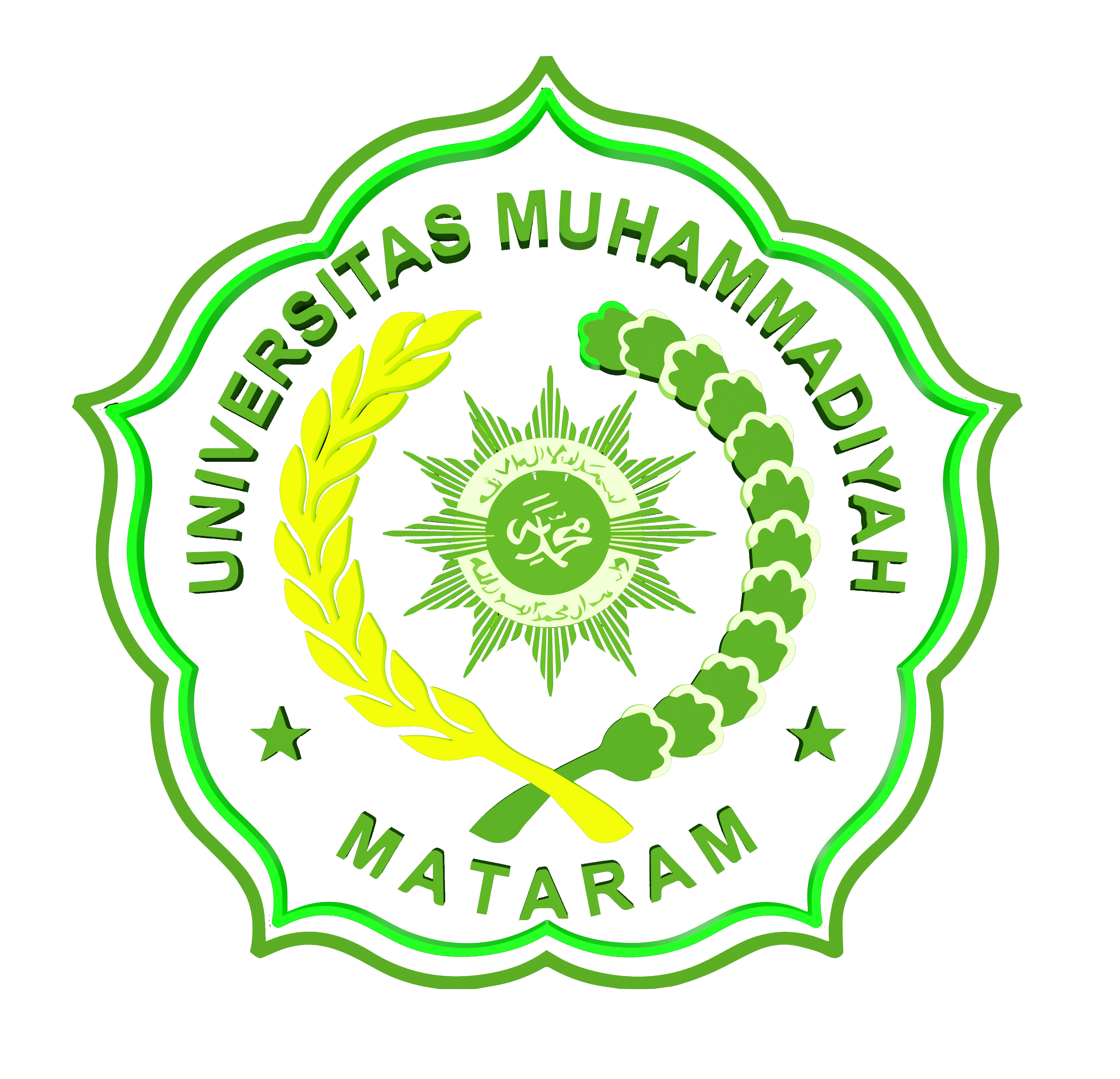HISTORY
MUHAMMADIYAH UNIVERSITY OF MATARAM
Muhammadiyah University Of Mataram is one of Muhammadiyah’s endeavors in the field of education. Historically, Muhammadiyah is an association established on the 8th of Dhu al-Hijjah 1330 Hijri or November 18, 1912 AD by K.H. Ahmad Dahlan. Muhammadiyah was first recognized as a legal entity by the Dutch Colonial government based on Gouvernement Besluit of August 22, 1914, number 81. During the administration of the Republic of Indonesia, the legal status of Muhammadiyah was still recognized based on the Letter from the Directorate General of Legal Development of the Ministry of Justice of the Republic of Indonesia Number J.A.5/160/4, and most recently reinforced by the Letter from the Ministry of Justice and Human Rights of the Republic of Indonesia Directorate General of General Legal Administration dated January 29, 2004, Number C.2-HT.01.03.A.165 regarding the legal status of the Muhammadiyah association.
The purpose and objective of Muhammadiyah is to uphold and elevate Islam so that a truly Islamic society is realized (see Article 6 of the Muhammadiyah Statutes). To achieve this purpose and objective, Muhammadiyah conducts da’wah (proselytizing) through Amar Ma’ruf Nahi Munkar (enjoining good and forbidding evil) and Tajdid (renewal), which are implemented in various fields of life (see Article 7 of the Muhammadiyah Statutes and Article 3 of the Muhammadiyah Bylaws), including the field of education as stipulated in the letter from the Minister of Education and Culture of the Republic of Indonesia dated July 24, 1974, Number 23628/MPK/74 regarding the recognition of Muhammadiyah as a legal entity operating in the field of education.
Muhammadiyah University of Mataram (UMMAT) was established on June 25, 1980, and its management is conducted by the Regional Leadership of Muhammadiyah of West Nusa Tenggara / Council for Education, Teaching, and Culture. Subsequently, its development was overseen by the Muhammadiyah Higher Education Foundation in accordance with Notary Deed Number 355 dated October 21, 1981, and amended by Notary Deed Number 16 dated August 8, 1986. When it was first established in 1980, Muhammadiyah University of Mataram had three faculties and six study programs, namely:
| 1. | FKIP : | – Moral Pancasila/Civic Education Law |
| – Indonesian Language and Literature Education | ||
| 2. | FISIPOL : | – Public Administration |
| – Business Administration | ||
| – Government Science | ||
| 3. | FATEK : | – Civil Engineering |
With registered status up to the Bachelor’s degree level, Muhammadiyah University of Mataram (UMMAT) has undertaken the development and expansion of its faculties and study programs in response to increasing student interest in pursuing their education at UMMAT. Over a span of 31 years since its establishment, from 1980 until 2016, the university has experienced rapid growth, currently comprising seven faculties/diplomas and a total of twenty-three undergraduate (S1) and diploma (D3) programs. The leadership periods at Muhammadiyah University of Mataram are as follows:
| NO | NAME OF LEADER | PERIOD OF TENURE |
| 1 | H. Anwar Ikraman | 1980-1983 |
| 2 | H. Idrus (Rektorium) | 1984-1987 |
| 3 | Prof. Drs. H. Abdul Karim Sahidu | 1988-1991 |
| 4 | K. H. Dimyati Solihan | 1992-1995 |
| 5 | H. Agusfian Wahab, SH | 1996-1999 |
| 6 | Ir. H. Suharto Tjitrohardjono | 2000-2003 |
| 7 | Prof. Dr. H. Baharuddin AB, MS | 2004-2005 |
| 8 | Dr. Ir. Imam Hidayat, M.Ag, Cr | 2006 |
| 9 | Drs. H. Syamsuddin Anwar | 2007 |
| 10 | H. Agusfian Wahab, SH (periode kedua) | 2008-2009 |
| 11 | Drs. H. Lalu Mudjitahid | 2010 |
| 12 | Drs. H. Mustamin H. Idris, MS | 2011-2018 |
| 13 | Dr. H. Arsyad Abd. Ghani, M.Pd. | 2019 – 2023 |
| 14 | Drs. Abdul Wahab, M.A | 2024 – 2028 |
Muhammadiyah University of Mataram, hereafter referred to as UMMAT, is one of the private universities owned by Muhammadiyah, located in Mataram, the capital city of West Nusa Tenggara Province. As a part of Muhammadiyah’s charitable efforts, UMMAT is an Islamic-based institution of higher learning rooted in the Qur’an and Sunnah, and guided by Pancasila (the five principles of Indonesia) and the 1945 Constitution of Indonesia. UMMAT fulfills the Four Duties of Muhammadiyah Higher Education Institutions: fostering piety and faith in Allah SWT, education and teaching, research, and community service based on Islamic teachings.
Muhammadiyah University of Mataram, as a tertiary institution approaching its thirty-ninth year, continues to reform itself to achieve its vision of becoming a healthy and independent university towards UMMAT Quality Responsive. UMMAT aims to become a moral force that cultivates high integrity morals, character, and national culture, fostering a democratic society, and serving as a source of knowledge and the development of human resources responsive to societal needs. Success in this endeavor hinges on UMMAT’s ability to effectively engage and garner active support from the government, society, and private sector in utilizing science, technology, and the arts.
UMMAT, as an independent university, is an integral part of the national education system based on Pancasila and the Constitution of the Republic of Indonesia. Its goal is to prepare students to become members of society equipped with piety, skills, and proficiency in the development and dissemination of knowledge, technology, and/or the arts, and to strive for their application for the benefit of society, the nation, and the state. To achieve these goals, Muhammadiyah University of Mataram implements a well-organized governance system. The governance structure of UMMAT includes systems, organizational structure, and mechanisms. Organizational-wise, UMMAT is one of the charitable efforts of Muhammadiyah in the field of education.
History
History Muhammadiyah University Mataram
Identity
Identity Muhammadiyah Univeristy Mataram
Visi dan Misi
Visi dan Misi Universitas Muhamamdiyah Mataram
Akreditasi
Akreditasi Universitas Muhamamdiyah Mataram
Rencana Strategis
Renstra Universitas Muhamamdiyah Mataram
Pimpinan UMMAT
Pimpinan Universitas Muhamamdiyah Mataram
Create a Better Future

